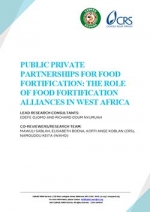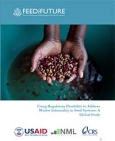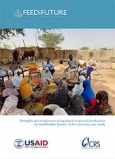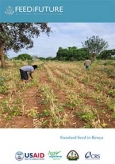Papers/Reports | January 10, 2024
Public Private Partnerships For Food Fortification
West Africa bears the highest burden of undernutrition in Africa, with stunting and wasting rates surpassing global averages. Women of Reproductive Age in the region face nutrition-related health issues, including a high prevalence of anemia. The Global Nutrition Report reveals that no West African country is on track to meet anemia targets for women. Micronutrient deficiencies are more prominent in women due to their increased needs and low dietary diversity. Diets in West Africa lack diversity, hindering sufficient micronutrient intake.
Large scale food fortification (LSFF) has been advocated as a cost-effective solution to address micronutrient deficiencies at scale. West African countries, starting with salt iodization in the 1990s, have embraced food fortification. This approach is endorsed in national nutrition policies and involves collaboration across government, industry, and civil society sectors.
LSFF requires coordinated efforts along the fortification value chain, involving stakeholders from production to consumption. Fortification alliances, established as inclusive platforms for stakeholder engagement, play a crucial role. However, despite their initial success, many fortification alliances in West Africa are inactive two decades after establishment.
Fortification alliances serve functions like coordinating stakeholders, diffusing standards through advocacy and sensitization, and implementing standards by monitoring and evaluating programs. Challenges impeding their success include technical limitations, low political motivation, and administrative hurdles like communication strategy and funding mechanisms.
To revive and sustain fortification alliances, key interventions are proposed, such as developing a regional fortification strategy, steering national strategies, revitalizing national alliances, creating sustainability structures, establishing a regional alliance, and formulating a funding strategy.
This study represents the first comprehensive exploration of fortification alliances across West Africa, aiming to enhance public-private partnerships for food fortification. Addressing the identified challenges and implementing proposed interventions can contribute to the effective governance and implementation of fortification initiatives in the region, ultimately improving the population's nutritional status.





